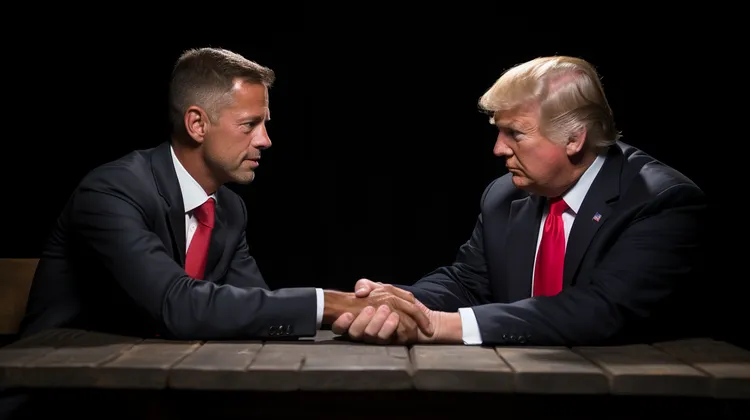In a groundbreaking announcement that has stunned both financial and cybersecurity circles, Tether, the company behind the widely used USDT stablecoin, has disclosed a series of partnerships with two of the United States’ most prominent law enforcement agencies: the Secret Service and the Federal Bureau of Investigation (FBI). This revelation marks a significant pivot in the relationship between cryptocurrency entities and regulatory bodies and could potentially redefine the landscape of digital asset oversight.
Tether’s partnerships with these federal agencies are pioneering for a number of reasons. For one, this collaboration signals a robust commitment by Tether to ensure that its platform is not a conduit for illicit activities such as money laundering or funding criminal enterprises. By aligning with the Secret Service and the FBI, Tether is positioning itself as an ally in the fight against financial crime, rather than a platform that operates on the fringes of legality.
The Secret Service, traditionally known for its role in protecting the nation’s political leaders and combating counterfeiting, has expanded its mission in recent years to include a focus on safeguarding the nation’s financial infrastructure. By partnering with Tether, the agency gains a vantage point within the cryptocurrency world to better understand and counter threats to the financial system.
Similarly, the FBI, as the leading federal investigative body, stands to benefit from direct engagement with Tether. Access to information on transactions that flow through one of the most widely used stablecoins can be invaluable for tracking illegal activities, whether they be related to terrorism, cybercrimes, or the underground economy.
Notably, these partnerships have raised some eyebrows within the crypto community, a space that is often synonymous with privacy and decentralization. Critics argue that such collaborations may erode the foundational principles of anonymity and freedom from government oversight that many cryptocurrency users hold dear. Proponents contend that forging partnerships with law enforcement is essential for the maturation of the industry and for cryptocurrencies to gain wider acceptance as legitimate and secure financial instruments.
This announcement also comes amid increased calls for transparency, both from within the crypto space and from regulators worldwide. For years, Tether has been the subject of intense scrutiny regarding its reserves and the stability of the USDT token. These law enforcement partnerships could be seen as a positive step towards dispelling doubts about Tether’s operations and strengthening user confidence in the stablecoin.
There are also implications for regulatory compliance. By proactively collaborating with the Secret Service and the FBI, Tether seems to be embracing the inevitable regulation of cryptocurrencies. This could pave the way for clearer guidance and regulations from governments which, until now, have grappled with how to oversee the burgeoning crypto economy.
Tether’s move may set a precedent for other players in the crypto space. As regulatory pressure mounts, other companies may follow suit, creating a more cooperative environment between crypto operators and law enforcement. Such alignment could help in upholding the integrity of digital currencies and promoting their integration into the mainstream financial system.
The partnerships have undoubtedly introduced complex questions regarding user privacy and the reach of government surveillance. Balancing law enforcement interests with the privacy rights of individuals remains a contentious issue, and it will be essential for Tether to navigate this with transparency and care.
The partnerships between Tether, the Secret Service, and the FBI represent a landmark shift in the crypto industry’s relationship with regulators and law enforcement. While it might herald a new era of collaboration and mutual understanding, it also challenges the industry to reconcile the promise of privacy with the realities of compliance and security. How Tether manages its cooperation with these agencies could well serve as a template for future engagements between the crypto world and government bodies, charting a course that others in the space may either choose to emulate or resist.



